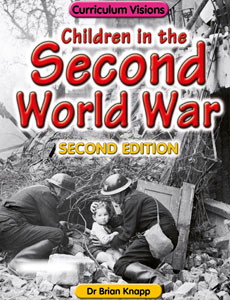Explore these further resources...
(These links take you to other parts of our web site, never to outside locations.)
You can search in these books:



The Blitz refers to a time in the early Second World War when the German air force bombed British cities.
The bombing lasted between the 7th of September 1940 and the 21st of May 1941. It affected 16 British cities. Over this period of 267 days London was attacked 71 times, Birmingham, Liverpool and Plymouth eight times, Bristol six, Glasgow five, Southampton four, and Portsmouth three.
It all started when the bombers were trying to bomb airfields during the Battle of Britain. But one bomber went off course and dropped its bombs on London. Prime Minister Winston Churchill then ordered a bombing raid on Berlin, Germany.
The leader of the Germans, Adolf Hitler, was so outraged that he switched bombing from the airfields (where they were being very successful) to British cities (where the size of the cities made them only partly useful).
More than a million houses were destroyed or damaged, and more than 40,000 civilians were killed. About half of those were in London.
The main targets were cities where there were ports or large area of factories. Liverpool was the most heavily bombed city outside London, but Bristol, Cardiff, Hull, Portsmouth, Plymouth, Southampton, and Swansea were also hit, as were Birmingham, Belfast, Coventry, Glasgow and Manchester.
Spitfire planes and ammunition were made in the Midlands, which is why Birmingham and Coventry were targeted.
By May 1941 the Germans had seen that it was a waste of time and had given up.

